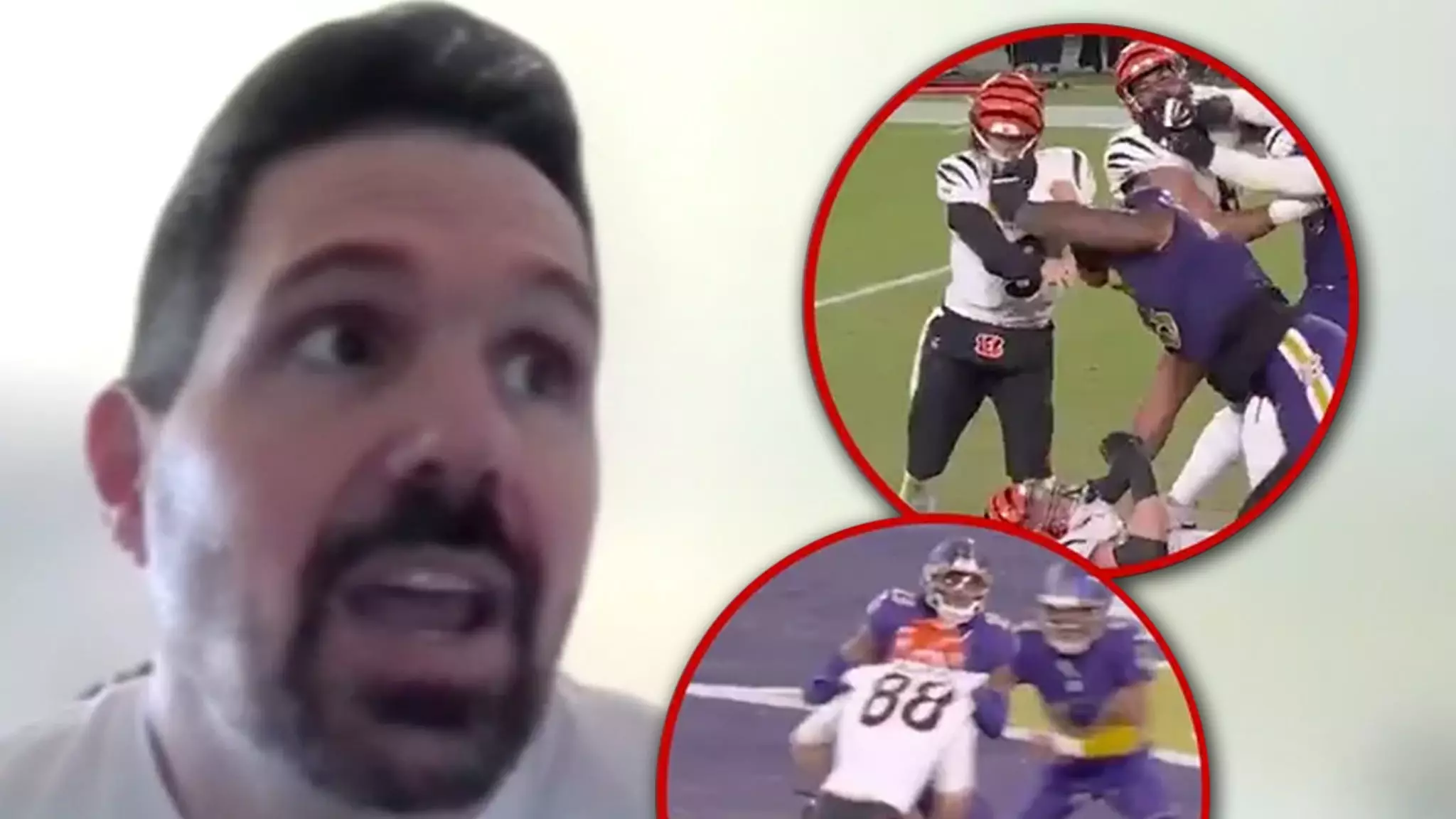The controversy surrounding missed calls in critical NFL games has reached a boiling point once again, drawing ire from fans and players alike. The recent Ravens versus Bengals game showcased two glaring missed calls that not only altered the game’s outcome but also ignited a renewed debate about officiating standards in the league. As frustration mounts among stakeholders, how can the NFL address these recurring issues? Insights from former NFL Vice President of Officiating, Dean Blandino, suggest a path toward improvement.
During his recent appearance on TMZ Sports, Blandino articulated a sentiment that many fans are likely unaware of: officials are as invested in getting calls right as the players are in winning. “Nobody wants to get it wrong more than the officials,” Blandino asserted. He emphasized that officials often carry the weight of their decisions, lamenting the times they miss critical calls that could change the game’s landscape. The insistence on accuracy highlights an emotional connection to their roles—a facet often overlooked in the criticism they face.
However, the conversation swiftly transitions to the tools at their disposal—or lack thereof. While technology has become an integral part of sports officiating, Blandino pointed out that past apprehensions about expanded replay have faded as its benefits have become evident. With the rapid advancements in technology, the NFL should rethink its approach, utilizing available resources to foster transparency and accuracy in officiating.
According to Blandino, the integration of further replay opportunities is not just welcomed but necessary. “Why not use them?” he questioned. Continuous advancements in technology present an opportunity for the NFL to enhance the officiating process, ensuring that game-altering decisions do not hinge upon human error. By implementing more extensive replay options, the league can better support its officials while also preserving the integrity of the game.
While technology offers solutions, it raises an important question: how do we balance the flow and pace of the game with the need for accuracy? The solution lies in creating a streamlined process that leverages technology without dragging the game into prolonged interruptions. Instituting more efficient review protocols could provide a balanced solution that addresses officiating concerns while maintaining audience engagement.
In the aftermath of controversial calls, it is crucial to assess the implications for the officials involved. Blandino highlighted that officials are scrutinized thoroughly—they are graded on every call and may face downgrades for errors. Such assessments are essential for accountability within officiating crews. However, it might also be beneficial for the NFL to provide continuous training programs focused on situational awareness and game management to empower officials better.
While the unfortunate missed calls in the Ravens versus Bengals game cannot be retracted, the NFL has the chance to pivot towards a more effective future. By embracing technology, focusing on training, and reinforcing accountability, the league can create a framework where officials can thrive and fans can trust in the integrity of the game. The conversation regarding officiating in football isn’t just about punishment; it’s about progress and the shared goal of achieving fairness in one of America’s most beloved sports.


Leave a Reply